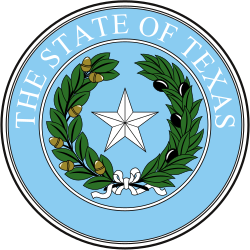This article needs additional citations for verification .(June 2022) |
| |||||||||||||||||||||
| |||||||||||||||||||||
 County results Briscoe: 40–50% 50–60% 60–70% 70–80% 80–90% Grover: 40–50% 50–60% 60–70% Muñiz: 40–50% 50–60% | |||||||||||||||||||||
| |||||||||||||||||||||
| Elections in Texas |
|---|
 |
The 1972 Texas gubernatorial election was held on November 7, 1972, to elect the governor of Texas. Incumbent Democratic governor Preston Smith ran for reelection, but lost renomination to businessman Dolph Briscoe. Smith was overwhelmingly rejected in the Democratic primary, taking fourth place with only 8% of the vote amid the fallout from the Sharpstown scandal. Briscoe went on to win the general election by a relatively small margin, winning 48% of the vote to Republican Henry Grover's 45%. Raza Unida candidate Ramsey Muniz won 6%.
Contents
- Democratic primary
- Candidates
- Results
- Runoff
- Republican primary
- Candidates 2
- Results 2
- Runoff 2
- Results 3
- References
As of 2022, this is the last time Jim Hogg and Brooks counties did not vote for the Democratic candidate, instead voting for the Raza Unida party.
The 1972 election marked the last time that a gubernatorial election was held concurrently with a presidential election and the last time that a governor was elected for a two-year term.



